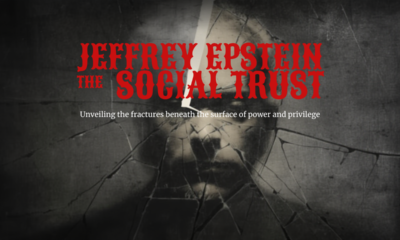Constitution
Capital punishment and abortion

Barack Obama opposes capital punishment. Yet he voted against legislation that would put an end to full-birth abortion. Full-birth abortion means nothing less than “kill the baby”—inflicting capital punishment not on the guilty but on the innocent! Hence, I am prompted to republish an article I wrote three decades ago. The reader should bear in mind however, that wherever the article refers to the “unborn child,” today we must add the “born but unwanted child.”
In the Mishna we read:
Therefore but a single man was created in the world, to teach that if any man has caused a single soul to perish, Scripture imputes it to him as though he had caused a whole world to perish; and if any man saves alive a single soul, Scripture imputes it to him as though he had saved alive a whole world.
To avoid misunderstanding, let me state at the outset that, except in extreme cases – such as Islamic terrorism – I do not advocate capital punishment in Israel at this time. Nor do I regard as correct the Catholic view of abortion. But there is something very curious about the liberal position on these two issues, especially by liberals who advocate the American practice of “abortion on demand.”
Capital punishment: does society have a right to exact it?
Among the arguments against capital punishment is the contention that society has no right to take the life even of the most savage murderer. Yet many if not most opponents of capital punishment assert the right of a woman, six and even more months pregnant, to snuff out, with the aid of a physician, the life of her unborn child. Murderers would thus be spared while the innocent would be murdered.
Oh, but now we have become “humane” and “progressive.” For now we feel compassion, perhaps some responsibility, for those who have taken life, not for those who have just begun to live. Without a twinge of moral doubt or remorse we execute the unborn and condemn as cruel and barbaric the execution of murderers.
That capital punishment should be called cruel and barbaric by its opponents is a nice commentary on our forefathers. Meanwhile, their humane descendants each year execute countless unborn babies whose only crime was to be unwanted.
An individual accused of murder receives due process of law. He is provided legal counsel to defend him, witnesses to testify on his behalf. In the United States, a jury of twelve persons is empanelled to hear and weigh evidence bearing on his guilt or innocence. Let only one member of that jury harbor a reasonable doubt as to his guilt and the accused is acquitted, his life spared.
Abortion = summary execution

Abortion stops a beating heart. Sign outside St. John’s Catholic Church in Onawa, Iowa. Photo: User wht_wolf9653 on Flickr, CC BY-SA 2.0 Generic License
Compare the plight of the unwanted, unborn child. He is utterly abandoned. Society affords him no defense, no legal counsel or friendly witness. Yet the life of the unborn child is on trial. He is on trial for being an inconvenient “fetus.”
But we too are on trial, on trial in the courtroom of indifference called the “humane” and “progressive” society. We are not only spectators; we are also the jury. And we have been instructed by judges. They have told us that this unborn child is not a human being—which we are all the more ready to believe having been taught to regard it as a mere “fetus.”
Had we not been thus instructed, had we only harbored a reasonable doubt on this life and death issue, we would have acquitted the child rather than become his executioners. Only a reasonable doubt, nothing more than this, and we would have affirmed the child’s as well as our own humanity.
Liberal advocates of abortion intone the idea that a person has the right to control his or her own body. Some derive this right from British common law. To stretch the common law to justify “abortion on demand” is rather ironic. For the common law prohibited the arbitrary control of another person’s body and regarded a “fetus” as a “person”! This being so, it was impermissible to execute a pregnant murderess. But this is not the only irony.
The idea of “abortion on demand” actually violates the very nature of a woman’s body and the essence of motherhood. This can best be seen by reflecting on the Hebrew word for a woman’s womb—rechem. One cognate of the word means to feel pity or pain at another’s suffering. Another is to feel joy at another’s happiness. Who feels more pain than a mother when her child is ill, or more joy when her child is well and successful. But this is not all.
The mother’s body nourishes the child in her womb. She gives of her own life’s substance to the child, a giving that signifies her selflessness. The very opposite character trait underlies “abortion on demand.”
Capital punishment and abortion in Jewish law
The laws of our supposedly barbaric forefathers prohibited abortion unless the mother’s life was in danger. Many of our forefathers were doctors. Today many doctors, having added abortions to their repertoire of services, have also multiplied their yearly earnings. Because of this vested interest, the medical profession has become one of the principal supporters of abortion.
As for capital punishment, consider a few aspects of Judaic law on the subject. First, neither circumstantial evidence nor the confession of the accused is admissible in court. Second, the murder had to be witnessed by two eligible persons, and they had to warn the would-be murderer of the consequences of his intended crime. To be culpable, the malefactor had to be sane, and the act of murder had to be deliberate. These qualifications made conviction for capital punishment exceedingly rare.
Clearly, these laws governing capital punishment do not depreciate the value of human life. To the contrary. Precisely because human life is sacred, those laws require the execution of convicted murderers, of those whose act of murder was itself a denial that human life is sacred.
By taking the life of a human being the murderer negates his own humanity; he reduces himself to the level of the beast. And it is more as a beast, homo lupus, than as homo civilis, that the murderer, after being duly tried and convicted, is executed. Imposing upon him the extreme penalty of death does not deny his humanity so much as it affirms the humanity or dignity of his victim. Perhaps, in the last analysis, the punishment of death is a profound public affirmation of the sanctity of life.
But these thoughts are not intended as a defense of capital punishment, else far more would have to be said on the subject. Let them rather stand as an argument against capital punishment: the capital punishment tolerated under the name of “abortion on demand” or its equivalent. If capital punishment is opposed on the ground that human life is so precious that even the life of the most vicious murderer must be spared, do we not cheapen life by the wholesale destruction of countless unborn children? Is the murderer more human than the unborn child?
One last word. In Alex Haley’s celebrated book, Roots, Omoro, one of the principal characters, tries to explain life and death to young Kunta Kinte: “He said that three groups of people lived in every village. First were those you could see walking around, eating, sleeping, and working. Second were the ancestors, whom Grandma Yaisa had now joined.” “And the third people—who are they?” asked Kunta.
“The third people,” said Omoro, “are those waiting to be born.”□
-

 Civilization4 days ago
Civilization4 days agoWhy Europe Shouldn’t Be Upset at Trump’s Venezuelan Actions
-

 Executive5 days ago
Executive5 days agoHow Relaxed COVID-Era Rules Fueled Minnesota’s Biggest Scam
-

 Christianity Today4 days ago
Christianity Today4 days agoSurprising Revival: Gen Z Men & Highly Educated Lead Return to Religion
-

 Civilization5 days ago
Civilization5 days agoThe End of Purple States and Competitive Districts
-

 Executive4 days ago
Executive4 days agoWaste of the Day: Can You Hear Me Now?
-

 Civilization1 day ago
Civilization1 day agoTariffs, the Supreme Court, and the Andrew Jackson Gambit
-

 Civilization2 days ago
Civilization2 days agoWhy Europe’s Institutional Status Quo is Now a Security Risk
-

 Civilization3 days ago
Civilization3 days agoDeporting Censorship: US Targets UK Government Ally Over Free Speech










Jessica Hopp liked this on Facebook.
Ted Foster liked this on Facebook.
Nicks N Raygun liked this on Facebook.
Ron Chronicle liked this on Facebook.
Implementation of capital punishment in the US has resulted in innocent people being killed. This is a fact. Therefore, one who claims to be “pro-life” is a complete hypocrite if he also supports capital punishment.
And failure to apply capital punishment in certain cases has led to even more innocent people dying at the hands of serial murderers, usually of women, who escape and do it again. Now maybe if you would agree to let ordinary civilians arm themselves…
Terry – essentially you are saying it is best to risk killing an innocent person by capital punishment to avoid said person escaping from person and killing additional people. Please provide statistics on the number of prisoners on death row who have escaped and killed again. Regardless, since you support the killing of innocent people – something that cannot be avoid when implementing capital punishment – you are not truly pro-life.
Can you provide statistics on people executed by mistake? Or deny that more women have died from acts of sexually motivated murder since the curtailment of capital punishment in this country than before that event?
Terry, for obvious reasons (i.e., it’s difficult to ever truly know if one is guilty or innocent, hence the problem with a punishment like the death penalty), there are no firm statistics on the number of innocent individuals killed on death row. Confirmed examples of innocent people would clearly provide an underestimation of this statistic. However, here is a list and citations of known cases of innocent people killed on death row: link to en.wikipedia.org. If you could now provide citations – and not just your opinion – for the notion and your alleged correlation that “…more women have died from acts of sexually motivated murder since the curtailment of capital punishment in this country than before that event,” that would be much appreciated.
Wanda Wyatt liked this on Facebook.